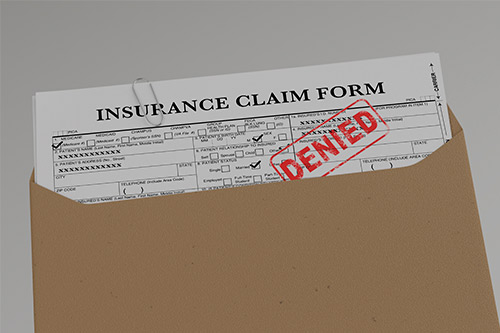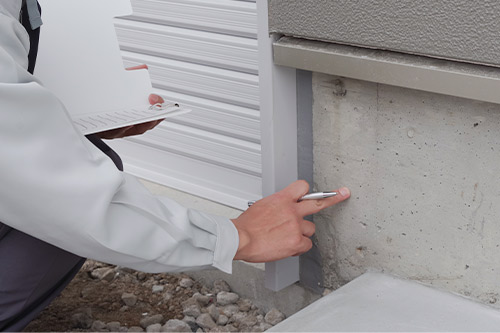The Complete Guide to Appealing Denied Winter Storm Damage Claims
Winter storms hit Texas homes and businesses hard. Ice-laden tree limbs collapse onto rooftops, pipes freeze and burst, and heavy snow weighs down already stressed structures. You expect your insurance policy to step in, only to get a denial letter in return.
For many Texas property owners, the storm isn’t the worst part. It’s the fight afterward.
At Palker Law, we help clients across Texas challenge denied or underpaid storm damage claims, especially after major winter events. If your claim was rejected, delayed, or met with a lowball offer, this guide walks you through what to do next, how the appeal process works, and what your rights are under Texas law.
Why Winter Storm Claims Are Denied More Often in Texas
 Insurance companies often ramp up claim denials after widespread disasters. When a storm affects tens of thousands of policyholders, insurers move into loss control mode. That may mean denying claims for vague or inconsistent reasons, dragging out inspections, or trying to blame damage on pre-existing conditions.
Insurance companies often ramp up claim denials after widespread disasters. When a storm affects tens of thousands of policyholders, insurers move into loss control mode. That may mean denying claims for vague or inconsistent reasons, dragging out inspections, or trying to blame damage on pre-existing conditions.
Here are a few of the most common reasons winter storm claims get denied:
- Lack of timely documentation
- Failure to prove the damage came from the storm
- Exclusions buried in policy fine print
- Disputes over what counts as “sudden and accidental” damage
- Allegations of poor maintenance, not storm impact
Insurers also frequently reject claims for pipe bursts or roof collapses unless the homeowner can show active prevention (e.g. maintaining heat, clearing snow buildup). But even when you did everything right, your claim may still be denied.
And unfortunately, these tactics are well-documented. In 2024, nearly 47% of all property claims in Texas were closed without payment, an alarming number tied to denial strategies after major weather events.
You Have the Right to Fight Back
Texas law provides clear protections for policyholders facing insurance misconduct. If your insurer denied your claim in bad faith, delayed inspections, or failed to provide a fair settlement offer, you may have grounds to appeal and to pursue legal damages.
Some of the strongest tools available include:
- Texas Insurance Code Chapter 541: Prohibits unfair claim settlement practices and deceptive conduct by insurers.
- Texas Insurance Code Chapter 542: Requires insurers to promptly investigate, accept, or deny claims and pay timely once accepted. Violations may entitle you to 18% interest plus legal fees.
- Two-year legal window: In most cases, you have up to two years from the date of loss to take legal action. But the earlier you act, the better your case will be.
Step-by-Step: What to Do If Your Claim Was Denied
 A denial isn’t the end. In fact, many clients come to us after being told “no” and walk away with full or increased compensation. Here’s what to do next:
A denial isn’t the end. In fact, many clients come to us after being told “no” and walk away with full or increased compensation. Here’s what to do next:
1. Request the Full Denial Explanation
Under Texas law, your insurer must explain in writing why they denied your claim. Get this in writing and review it line-by-line. Common language includes vague claims about pre-existing damage or exclusions that may not apply to your case.
If anything is unclear, don’t assume it’s correct. Insurers count on policyholders walking away.
2. Review Your Policy with Legal Support
Policy language is complicated by design. Exclusions and coverage limits may seem ironclad but a closer look often reveals room for legal challenge.
For example, your policy might say that gradual water damage isn’t covered, but if the cause was a frozen pipe that burst during the storm, that’s a covered “sudden event.” That nuance can make or break your claim.
Palker Law routinely reviews policies and denial letters together to identify weak or invalid grounds for denial.
3. Thoroughly Document the Damage Again
Even if the insurer has already inspected, you need your own evidence. Get a second inspection. Take clear, timestamped photos. Keep receipts for emergency repairs. Secure expert reports from licensed contractors or engineers to counter insurance adjuster findings.
If the denial involved roof damage, attic leaks, foundation cracks, or frozen plumbing, you’ll need precise, dated proof to support your appeal.
4. Avoid Unintentional Waivers
Many homeowners unknowingly give up their rights by signing certain documents or accepting partial payments labeled “final.” You may still be able to challenge the valuation even after accepting a payment, but don’t cash anything marked as a full and final settlement without legal review.
5. Send a Pre-Suit Notice if You Plan to Sue
Before filing a lawsuit in Texas, you must send a 60-day pre-suit notice letter outlining your dispute and damages sought. Palker Law handles this step for clients and uses it to open the door to better settlement discussions, often without litigation.
Should You File an Appeal or a Lawsuit?
 That depends on the specifics of your claim and your insurer’s conduct. In some cases, a supplemental claim or request for reconsideration is enough, especially when backed by strong documentation and legal support.
That depends on the specifics of your claim and your insurer’s conduct. In some cases, a supplemental claim or request for reconsideration is enough, especially when backed by strong documentation and legal support.
In others, especially where there’s delay or deception, filing a lawsuit for bad faith may be necessary.
At Palker Law, we assess every case individually and recommend a course of action that’s built to get results, whether that’s appeal, appraisal, settlement negotiations, or litigation.
What If You’ve Already Paid for Repairs?
You can still pursue reimbursement if the damage is tied to a covered event. The key is proving causation, that the winter storm directly triggered the repairs. If we can show that link using reports, weather data, and expert inspection, you may be eligible for repayment.
Palker Law: Texas Storm Claim Appeals, Done Right
At Palker Law, storm claims aren’t a sideline. They’re the core of what we do. From Austin to Amarillo, we help Texans who’ve been left in the cold by their insurers. That includes:
- Homeowners with burst pipes, roof damage, or water intrusion
- Landlords managing tenant-impact claims
- Commercial property owners with denied business interruption coverage
- Families who filed late and were told “sorry, too bad”
We review your full file, work with trusted inspectors, and push for full repayment under your policy. You won’t pay anything unless we recover for you.
📎 Learn more about storm damage claims and your rights
Questions About It?
If you’ve received a denial, or even a suspiciously low payout, for winter storm damage, don’t guess what to do next. Call or message Palker Law for a free consultation. We’ll review your claim, walk you through your rights, and tell you what the insurance company doesn’t want you to know.
Your claim deserves more than a form letter. It deserves proof. And so do you.






